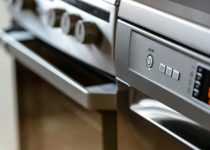Price Breakdown: Charcoal Versus Gas Grills
Looking to upgrade your grill but not sure whether to go with charcoal or gas? In this article, we’ll break down the price differences between these two popular options.
You’ll find out the initial purchase price, fuel costs, maintenance expenses, and more.
By the end, you’ll have a clear understanding of which grill offers the best long-term value and resale potential.
So, grab a drink, sit back, and let’s dive into the price breakdown of charcoal versus gas grills.
Table of Contents
Key Takeaways
- Charcoal grills have a lower initial purchase price compared to gas grills, but gas grills can save money in the long run due to lower fuel costs.
- Gas grills offer better fuel efficiency and have a lower environmental impact compared to charcoal grills.
- Gas grills generally require more upkeep and maintenance compared to charcoal grills, leading to higher maintenance costs.
- Gas grills provide quick start-up, precise temperature control, and a wider range of cooking techniques compared to charcoal grills.
Initial Purchase Price
When you’re considering purchasing a grill, you might frequently find yourself comparing the initial prices of charcoal and gas grills. It’s important to conduct a cost analysis to determine which type of grill fits your budget and needs.
Initially, charcoal grills tend to have a lower purchase price compared to gas grills. This is primarily because charcoal grills are simpler in design and don’t require as many components. Gas grills, on the other hand, have more complex mechanisms, such as burners and fuel tanks, which contribute to their higher price tag.
However, it’s crucial to consider the long-term costs as well. While gas grills may be pricier upfront, they can save you money in the long run due to the lower cost of propane or natural gas compared to charcoal. Additionally, charcoal grills require frequent charcoal refills, which can add up over time.
Ultimately, it’s essential to weigh the initial purchase price against the long-term costs before making a decision between charcoal and gas grills.
Fuel Costs
To continue analyzing the cost breakdown of charcoal versus gas grills, let’s now delve into the fuel costs associated with both options.
When it comes to fuel efficiency, gas grills have the upper hand. They’re designed to efficiently convert gas into heat, resulting in a more economical use of fuel. On the other hand, charcoal grills tend to be less fuel efficient as they require more charcoal to generate the same amount of heat. This means that over time, you may find yourself spending more money on charcoal briquettes compared to the cost of gas for a gas grill.
In terms of environmental impact, gas grills are generally considered to be more environmentally friendly. Gas burns cleaner than charcoal, producing fewer emissions and less smoke. This not only reduces air pollution but also minimizes the release of harmful chemicals into the environment. Charcoal, on the other hand, is made from wood and often contains additives that can contribute to air pollution and deforestation.
To summarize, gas grills offer better fuel efficiency and have a lower environmental impact compared to charcoal grills. While the initial purchase price of a gas grill may be higher, the long-term savings on fuel costs and the positive environmental benefits make it a more cost-effective and eco-friendly choice.
Maintenance and Upkeep Expenses
To properly maintain and care for your grill, regular maintenance expenses are essential. Keeping your grill in good condition ensures that it continues to function effectively and extends its lifespan. Maintenance costs can vary depending on the type of grill you own. Gas grills generally require more upkeep and maintenance compared to charcoal grills.
Here is a breakdown of the maintenance costs you can expect for both types of grills:
| Maintenance Costs | Charcoal Grill | Gas Grill |
|---|---|---|
| Cleaning Supplies | $15 | $25 |
| Replacement Parts | $10 | $40 |
| Regular Check-ups | $0 | $50 |
| Total | $25 | $115 |
As you can see, gas grills tend to have higher maintenance costs due to the need for more frequent check-ups and the higher cost of replacement parts. Gas grills require regular inspections to ensure that the gas lines and valves are in good condition. Replacement parts, such as burners and ignition systems, can be costly. On the other hand, charcoal grills have minimal maintenance costs, mainly limited to cleaning supplies.
To keep your grill functioning optimally and avoid costly repairs, it is important to factor in these maintenance costs when making your decision between a charcoal and gas grill.
Cooking Efficiency and Time Savings
For optimal cooking efficiency and time savings, consider the benefits of using a gas grill over a charcoal grill. Gas grills provide several advantages that can enhance your cooking experience and save you valuable time.
Here are three reasons why a gas grill is a more efficient choice:
-
Quick Start-Up: With a gas grill, you can start cooking in a matter of minutes. Simply turn on the gas, ignite the burners, and you’re ready to go. No waiting for the charcoal to heat up or dealing with messy lighter fluid.
-
Precise Temperature Control: Gas grills offer precise temperature control, allowing you to easily adjust the heat according to your cooking needs. Whether you’re searing a steak or slow-cooking ribs, you can achieve consistent results every time.
-
Versatile Cooking Techniques: Gas grills provide a wide range of cooking techniques, from direct grilling to indirect heat for roasting or smoking. With charcoal grills, you have limited options for controlling the heat distribution and cooking styles.
While some may argue that charcoal grills offer a distinct smoky flavor, the taste comparison between gas and charcoal grills is subjective. Many gas grills are equipped with features like flavorizer bars or smoke boxes, allowing you to achieve a similar smoky taste.
Long-Term Value and Resale Potential
When considering the long-term value and resale potential of your grill, it’s important to assess the durability and maintenance requirements of both gas and charcoal options.
Gas grills are typically constructed with stainless steel or cast aluminum, making them more resistant to rust and corrosion compared to charcoal grills, which are often made of less durable materials like painted steel. This durability advantage translates into a higher resale value for gas grills as they tend to hold up better over time.
In terms of maintenance, gas grills require less cleaning and upkeep compared to charcoal grills. With gas grills, you don’t have to worry about disposing of ash or cleaning out charcoal residue. This convenience factor may also contribute to the higher resale value of gas grills, as potential buyers may be willing to pay more for a grill that requires less maintenance.
When comparing the resale value of gas and charcoal grills with other grill types, gas grills generally have a higher resale value due to their durability, convenience, and ease of use. However, it’s important to note that the overall condition and maintenance of the grill will also impact its resale potential. Regular cleaning and proper maintenance can help preserve the value of your grill, regardless of the type.
Frequently Asked Questions
Are There Any Safety Concerns With Using Charcoal or Gas Grills?
When using charcoal or gas grills, there are safety concerns to consider. Make sure to use proper ventilation when grilling to prevent carbon monoxide buildup. Always follow the manufacturer’s instructions for safe operation.
Can I Use Both Charcoal and Gas on the Same Grill?
Yes, you can use both charcoal and gas on the same grill. It offers the benefits of both cooking methods, allowing you to have the smoky flavor of charcoal and the convenience of gas.
What Are the Environmental Impacts of Using Charcoal or Gas Grills?
When considering the environmental impacts of using charcoal or gas grills, it’s important to think about their carbon emissions. Gas grills generally have lower carbon emissions compared to charcoal grills, making them more environmentally sustainable.
Are There Any Health Risks Associated With Grilling?
There are potential health risks associated with grilling, but you can still enjoy its benefits by using proper grilling techniques. Make sure to cook meats thoroughly and avoid charring to reduce the formation of harmful compounds.
Can I Use Wood Pellets as an Alternative Fuel for Grilling?
Yes, you can use wood pellets as an alternative fuel for grilling. They offer a distinct smoky flavor and are more environmentally friendly, but they may require special equipment and can be more expensive.



